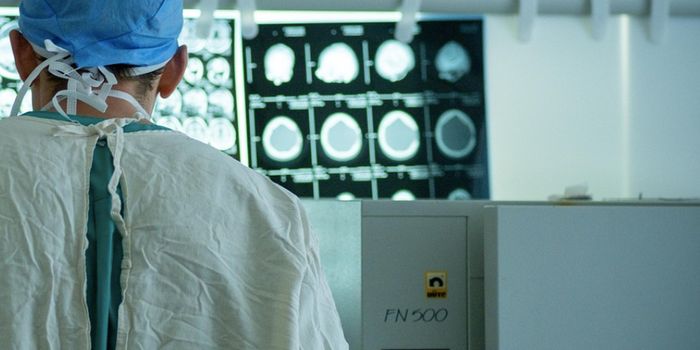Stroke, Dementia, Late-Life Depression Share Many Changeable Risk Factors
There are many conditions that are associated with aging, including stroke and dementia. But genetics, environmental conditions, and habits like the type of diet a person eats can affect the likelihood that an aging-related disease will develop. Scientists have now identified seventeen risk factors that are shared by dementia, stroke, and depression in late life. The modification of any of these risk factors can influence a person's risk of these disorders, and many can be altered with lifestyle changes. The findings have been reported in the Journal of Neurology, Neurosurgery, and Psychiatry.
These risk factors include: alcohol intake, blood pressure, body mass index, total cholesterol, diet, fasting plasma glucose, leisure time, cognitive activity, physical activity, sleep, smoking, social engagement, stress, and having a purpose in life.
"Our study identified 17 modifiable risk factors shared between stroke, dementia, and/or late-life depression, emphasizing that there are many different steps individuals can take to lower their risks for these age-related brain diseases," said senior author Sanjula Singh, MD, Ph.D., MSc (Oxon), principal investigator at the Brain Care Labs at Massachusetts General Hospital (MGH).
The researchers searched through publications in a meta-analysis to look for studies assessing risk factors that are linked to late-life depression, dementia, and stroke, such as those listed as well as pain, kidney function, and hearing loss. This data was considered along with modifiable risk factors, and many were found to be shared by at least two of the three diseases.
High blood pressure and severe kidney disease were found to have the largest influences on a higher risk of stroke, dementia, and late-life depression.
Physical activity levels and cognitive leisure activities had the biggest impacts on lowering the risk of disease. But, the researchers cautioned that these associations may not be causal and might reveal more about symptom presentation, because people who have dementia may be less likely to engage in physical or cognitive acitivities.
"Dementia, stroke, and late-life depression are connected and intertwined, so if you develop one of them, there's a substantial chance you may develop another one in the future," explained first author Jasper Senff, MD, post-doctoral fellow at the Singh Lab at the Brain Care Labs at MGH. "And because they share these overlapping risk factors, preventive efforts could lead to a reduction in the incidence of more than one of these diseases, which provides an opportunity to simultaneously reduce the burden of age-related brain diseases."
Scientists at MGH also developed the Brain Care Score, which can offer guidance on improving brain health and is described in the video above.
Sources: Mass General Brigham, Journal of Neurology, Neurosurgery, and Psychiatry









